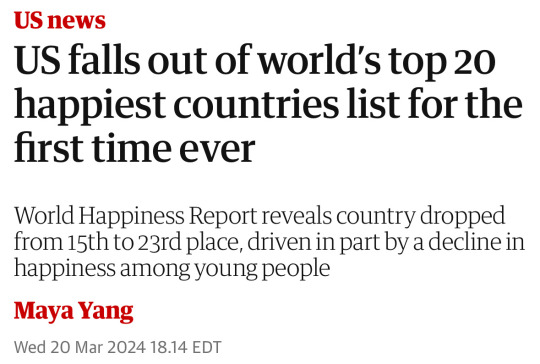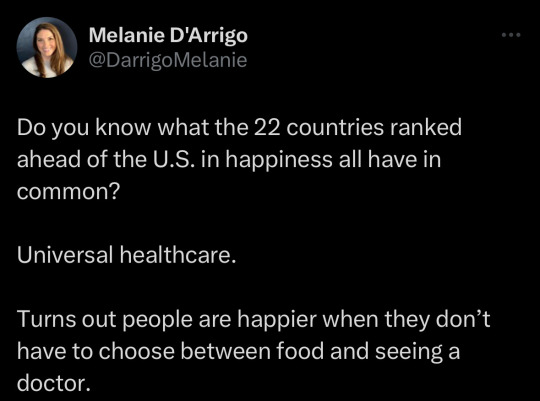#welfarism
Text
Robbie Douglas-Miller, who was last week given a peerage to allow him to become minister in the Department for Environment, Food and Rural Affairs (Defra), owns a grouse moor in Scotland and has argued for the relaxation of rules on shooting wild birds that prey on salmon.
He is also on the board of a fishery which applied to obtain a licence to kill seals in 2021; last year he gained a licence to kill wild cormorants and sawbill ducks.
Just in case you happen to be one of those people clinging to the argument that animal welfare reforms will solve anything…
43 notes
·
View notes
Text

#poverty#homelessness#capitalism#housing crisis#welfare#classism#class war#late stage capitalism#class warfare#eat the rich#vote blue#vote democrat#please vote#voting#election 2024#get out the vote#american politics#us elections#kamala harris#vote kamala#kamala 2024#kamala for president#harris#president#election#presidency#vote harris#harris 2024#kamala#tim walz
34K notes
·
View notes
Text
I think it's a common misconception that domesticating animals is somewhat like enslaving them. It really is more of a symbiotic relationship. No wild animal would have willingly put up with early humans if they didn't get something out of it. Wolves wouldn't have stayed with us and become dogs if they weren't getting food and safety out of it. Many large herbivores that are now domesticated could and would have easily trampled their early human captors or broken their enclosures open if they didn't have a reason to stay. Sometimes individual animals still do if we don't give them what they need.
The animals that have stayed with us for thousands of years have evolved to cooperate with us better. Dogs have additional facial muscles around their eyes that wolves lack in order to mimic human facial expressions. Sheep grow their wool perpetually while their wild counterparts don't because a bigger fleece means they're more likely to be allowed to breed and be kept around. Domestic dairy cows produce much more milk than wild bovine species and domestic hens lay more eggs. Do you know how energy costly producing eggs or milk is for an animal? It's pretty intense! They wouldn't be able to do that if we hadn't given them the food and safety from predators and the elements to.
And we really need to show these animals respect and gratitude for what they give us by taking excellent care of them. They gave up a lot to be with us, often including the means to take care of themselves in the wild. That's a huge reason why I'm not against using animal products, but I hate factory farming. They are still living, breathing creatures with needs and feelings. They deserve a comfortable life and, when the time comes, a humane death.
34K notes
·
View notes
Text
My favorite signage from the NEW Zoo in northern Wisconsin.
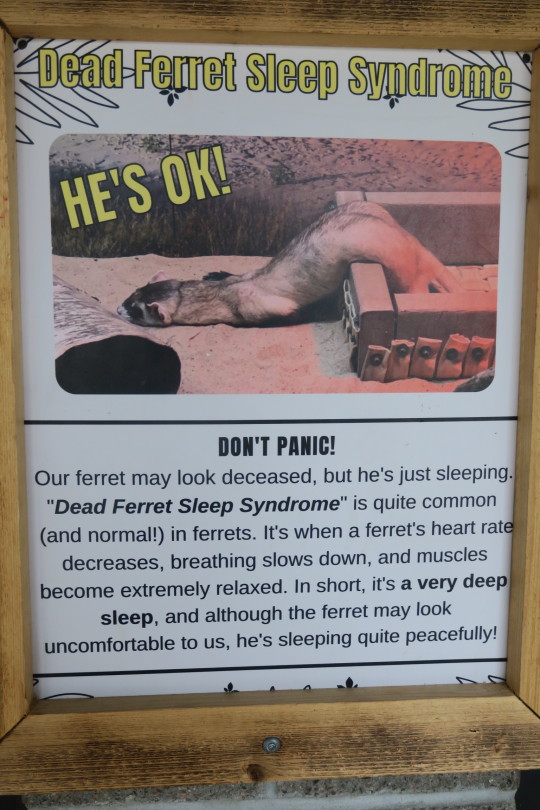
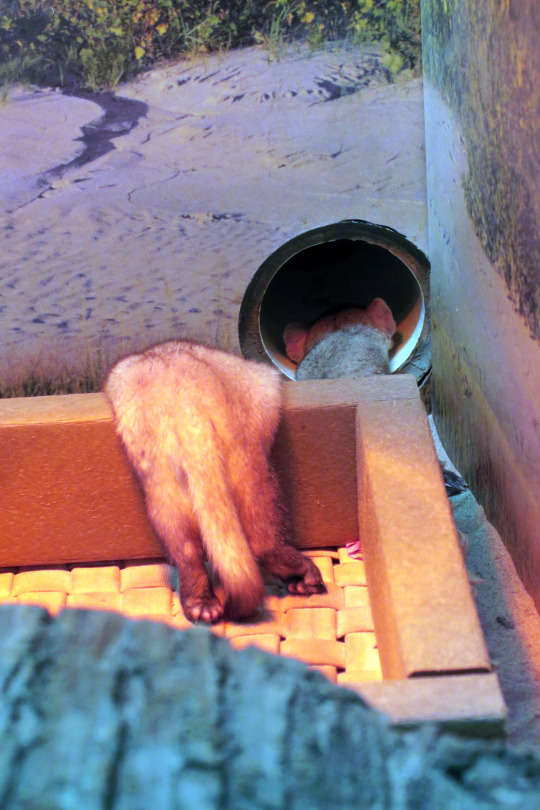
27K notes
·
View notes
Text

Source

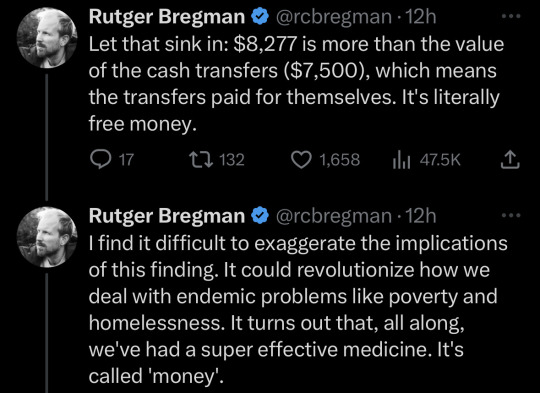
Source
#end homelessness#news#good news#science#social justice#homelessness#government#the left#social welfare#important#current events#politics
55K notes
·
View notes
Text
Not to be a killjoy (though it is what I do best) but the unsafe and rough handling of a baby Pygmy hippo in a pretty substandard Thai zoo being meme-ed into something funny and cute really shows just how much groupthink plays into public perception of animal welfare.
Moo Deng shows avoidance, threat displays and stress around her keepers that are constantly man-handling her, blasting her with a hose and harassing her. The enclosure is mostly concrete, which is horrible for her soft feet. There looks to be some substrate but there doesn’t seem to be any areas for wallowing or deep water wading.
There’s also very easy access of this hippo to the public with no places to hide. I’d love if someone could shed more light on the enclosures but from what I’ve seen it’s not great.
Also the free contact and forcing into tubs that the keepers do is only going to create an avoidant and potentially aggressive and dangerous Pygmy hippo.
But the public happily overlook that because she’s cute. It’s a similar attitude with seals too.
Stop rewarding bad husbandry with clout. Baby animals deserve agency and respect and to grow up without getting harassed and feeling the need to defend themselves constantly.
14K notes
·
View notes
Text

57K notes
·
View notes
Text

Cat people sure do love making it everyone else's responsibility to keep their outdoor cat safe.
9K notes
·
View notes
Text
A study that just came out demonstrates that outdoor cats are known to prey on over two thousands species of wild animal, from mammals to birds to insects. That includes 347 species that are endangered, threatened or otherwise of concern, and they've been a key factor of the permanent extinction of over 60 species. And while cats may not always bring home what they catch, chances are if your cat is allowed to roam unsupervised outside, they're killing your local wildlife.
Why is this so important? Worldwide, wild animal populations have decreased in number by 69% in the past fifty years; that means that in my lifetime (born in 1978), the sheer number of wild animals in the world has been decreased by over half. Even "common" wild species are less numerous than before. While habitat population is the single biggest cause of species endangerment and extinction overall, outdoor and indoor/outdoor cats are a significant cause as well. In fact, they are the single biggest cause of human-caused mortality in wild birds.
Most importantly, it's very, very simple to fix this problem: keep your cats indoors, and spay and neuter them. If your cat is bored, they need more enrichment, and there are plenty of ways to make your home more exciting for them, from bringing home cardboard boxes for them to explore, to playing with them more often. If you want your cat to get some outdoor enrichment, leash train them (yes, it can be done!) If you have the space and resources, build them a catio where they can be safe from outdoor dangers like predators and cars, while also keeping local wildlife safe from them.
If you just give into their whining and pawing at the door, then they know that that's what they have to do to get their way; I know it's a tough transition, but it's worth it in the end for everyone involved. Cats are domesticated, which means they are not native anywhere in the world; there are exactly zero ecosystems in which they belong, save for the safety of your home. It is your responsibility to give them an enriching environment without taking the shortcut of letting them go wreak havoc outside.
#cats#outdoor cats#feral cats#nature#wildlife#animals#ecology#environment#conservation#science#scicomm#birds#endangered species#extinction#domesticated animals#domestication#biology#animal behavior#animal welfare
8K notes
·
View notes
Text
As someone who works w animals “animals are not mindless automatons, they actually do have feelings and individuality and are capable of feeling acute physical and emotional pain and of forming deep attachments with other animals and people” and “animals are not human infants and have a limited capacity to communicate with humans so you have to familiarize yourself with their boundaries bc if they feel threatened or overstimulated they will fall back on their basic instincts and if you fuck around you are going to find out” are statements that can and should coexist
#why is this so hard for ppl to understand#yes they’re capable of genuine love and empathy#no that doesn’t come with an endless supply of patience for human bs or a complex understanding of human motivations#bc they aren’t just here for human consumption they’re literally vibing#animal rights#animal welfare#animal care#animal exploitation
50K notes
·
View notes
Note
What is with all the is-the-animal-cute accounts being anti-vegan!?
I think that these people are primarily animal welfarists, they are focused on how we can use and be entertained by animals but minimising the harm we cause them by doing so. This is just a very different position than a liberationist, bloggers like these reject (and are often viscerally offended by) the concept that animals have their own rights, that they exist for their own purposes and should not serve as products or entertainment for us.
65 notes
·
View notes
Text

#poverty#homelessness#capitalism#housing crisis#welfare#classism#eat the rich#wealth inequality#late stage capitalism#corporate greed#income inequality#minimum wage#vote blue#vote democrat#please vote#voting#election 2024#get out the vote#american politics#us elections#kamala harris#vote kamala#kamala 2024#kamala for president#harris#president#election#presidency#vote harris#harris 2024
2K notes
·
View notes
Text
I know I already made a post about this. But ICWA is LITERALLY being challenged by a white couple that wants to adopt indigenous children to erase their culture and Christianize them. The tribe, whom has a say in who can take their children, is like "Nah, we don't want our youth Christianized like you tride last time"
And the lawyer that's helping the white couple try to overturn ICWA (so that they can erase the cultures of indigenous children) is doing it pro-bono (which means he's not charging the couple anything).
AND that lawyer is a big time lawyer whose clients are usually oil and gas industries. He's literally fighting for indigenous children to be ripped from their tribes and culture so there's less indigenous people to protest big oil destroying their sacred land.
-fae
50K notes
·
View notes
Text
average United States contains 1000s of pet tigers in backyards" factoid actualy [sic] just statistical error. average person has 0 tigers on property. Activist Georg, who lives the U.S. Capitol & makes up over 10,000 each day, has purposefully been spreading disinformation adn [sic] should not have been counted
I have a big mad today, folks. It's a really frustrating one, because years worth of work has been validated... but the reason for that fucking sucks.
For almost a decade, I've been trying to fact-check the claim that there "are 10,000 to 20,000 pet tigers/big cats in backyards in the United States." I talked to zoo, sanctuary, and private cat people; I looked at legislation, regulation, attack/death/escape incident rates; I read everything I could get my hands on. None of it made sense. None of it lined up. I couldn't find data supporting anything like the population of pet cats being alleged to exist. Some of you might remember the series I published on those findings from 2018 or so under the hashtag #CrouchingTigerHiddenData. I've continued to work on it in the six years since, including publishing a peer reviewed study that counted all the non-pet big cats in the US (because even though they're regulated, apparently nobody bothered to keep track of those either).
I spent years of my life obsessing over that statistic because it was being used to push for new federal legislation that, while well intentioned, contained language that would, and has, created real problems for ethical facilities that have big cats. I wrote a comprehensive - 35 page! - analysis of the issues with the then-current version of the Big Cat Public Safety Act in 2020. When the bill was first introduced to Congress in 2013, a lot of groups promoted it by fear mongering: there's so many pet tigers! they could be hidden around every corner! they could escape and attack you! they could come out of nowhere and eat your children!! Tiger King exposed the masses to the idea of "thousands of abused backyard big cats": as a result the messaging around the bill shifted to being welfare-focused, and the law passed in 2022.
The Big Cat Public Safety Act created a registry, and anyone who owned a private cat and wanted to keep it had to join. If they did, they could keep the animal until it passed, as long as they followed certain strictures (no getting more, no public contact, etc). Don’t register and get caught? Cat is seized and major punishment for you. Registering is therefore highly incentivized. That registry closed in June of 2023, and you can now get that registration data via a Freedom of Information Act request.
Guess how many pet big cats were registered in the whole country?
97.
Not tens of thousands. Not thousands. Not even triple digits. 97.
And that isn't even the right number! Ten USDA licensed facilities registered erroneously. That accounts for 55 of 97 animals. Which leaves us with 42 pet big cats, of all species, in the entire country.
Now, I know that not everyone may have registered. There's probably someone living deep in the woods somewhere with their illegal pet cougar, and there's been at least one random person in Texas arrested for trying to sell a cub since the law passed. But - and here's the big thing - even if there are ten times as many hidden cats than people who registered them - that's nowhere near ten thousand animals. Obviously, I had some questions.
Guess what? Turns out, this is because it was never real. That huge number never had data behind it, wasn't likely to be accurate, and the advocacy groups using that statistic to fearmonger and drive their agenda knew it... and didn't see a problem with that.
Allow me to introduce you to an article published last week.
This article is good. (Full disclose, I'm quoted in it). It's comprehensive and fairly written, and they did their due diligence reporting and fact-checking the piece. They talked to a lot of people on all sides of the story.
But thing that really gets me?
Multiple representatives from major advocacy organizations who worked on the Big Cat Publix Safety Act told the reporter that they knew the statistics they were quoting weren't real. And that they don't care. The end justifies the means, the good guys won over the bad guys, that's just how lobbying works after all. They're so blase about it, it makes my stomach hurt. Let me pull some excerpts from the quotes.
"Whatever the true number, nearly everyone in the debate acknowledges a disparity between the actual census and the figures cited by lawmakers. “The 20,000 number is not real,” said Bill Nimmo, founder of Tigers in America. (...) For his part, Nimmo at Tigers in America sees the exaggerated figure as part of the political process. Prior to the passage of the bill, he said, businesses that exhibited and bred big cats juiced the numbers, too. (...) “I’m not justifying the hyperbolic 20,000,” Nimmo said. “In the world of comparing hyperbole, the good guys won this one.”
"Michelle Sinnott, director and counsel for captive animal law enforcement at the PETA Foundation, emphasized that the law accomplished what it was set out to do. (...) Specific numbers are not what really matter, she said: “Whether there’s one big cat in a private home or whether there’s 10,000 big cats in a private home, the underlying problem of industry is still there.”"
I have no problem with a law ending the private ownership of big cats, and with ending cub petting practices. What I do have a problem with is that these organizations purposefully spread disinformation for years in order to push for it. By their own admission, they repeatedly and intentionally promoted false statistics within Congress. For a decade.
No wonder it never made sense. No wonder no matter where I looked, I couldn't figure out how any of these groups got those numbers, why there was never any data to back any of the claims up, why everything I learned seemed to actively contradict it. It was never real. These people decided the truth didn't matter. They knew they had no proof, couldn't verify their shocking numbers... and they decided that was fine, if it achieved the end they wanted.
So members of the public - probably like you, reading this - and legislators who care about big cats and want to see legislation exist to protect them? They got played, got fed false information through a TV show designed to tug at heartstrings, and it got a law through Congress that's causing real problems for ethical captive big cat management. The 20,000 pet cat number was too sexy - too much of a crisis - for anyone to want to look past it and check that the language of the law wouldn't mess things up up for good zoos and sanctuaries. Whoops! At least the "bad guys" lost, right? (The problems are covered somewhat in the article linked, and I'll go into more details in a future post. You can also read my analysis from 2020, linked up top.)
Now, I know. Something something something facts don't matter this much in our post-truth era, stop caring so much, that's just how politics work, etc. I’m sorry, but no. Absolutely not.
Laws that will impact the welfare of living animals must be crafted carefully, thoughtfully, and precisely in order to ensure they achieve their goals without accidental negative impacts. We have a duty of care to ensure that. And in this case, the law also impacts reservoir populations for critically endangered species! We can't get those back if we mess them up. So maybe, just maybe, if legislators hadn't been so focused on all those alleged pet cats, the bill could have been written narrowly and precisely.
But the minutiae of regulatory impacts aren't sexy, and tiger abuse and TV shows about terrible people are. We all got misled, and now we're here, and the animals in good facilities are already paying for it.
I don't have a conclusion. I'm just mad. The public deserves to know the truth about animal legislation they're voting for, and I hope we all call on our legislators in the future to be far more critical of the data they get fed.
#big cats#tiger king#my research#news#big cat public safety act#animal welfare#big cat welfare#legislation and regulation#vent post#long post#crouchingtigerhiddendata#more on the problems with the bill in the future
7K notes
·
View notes



